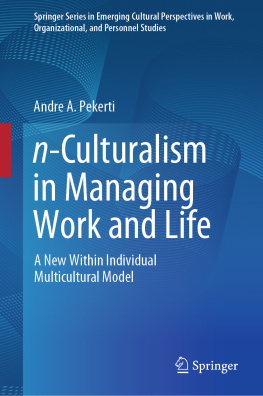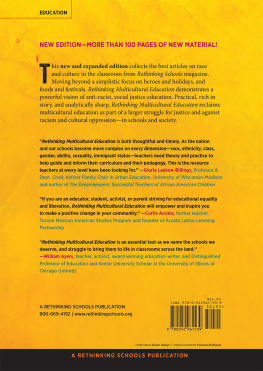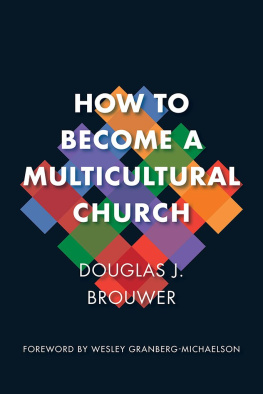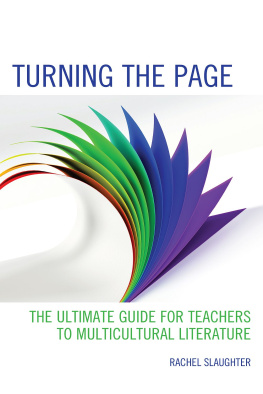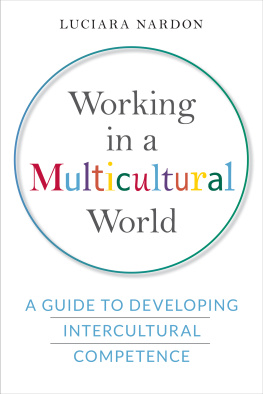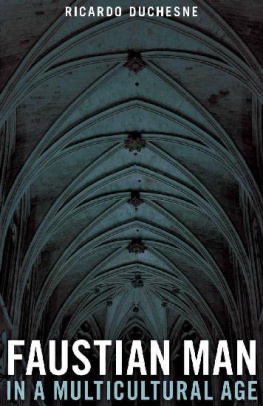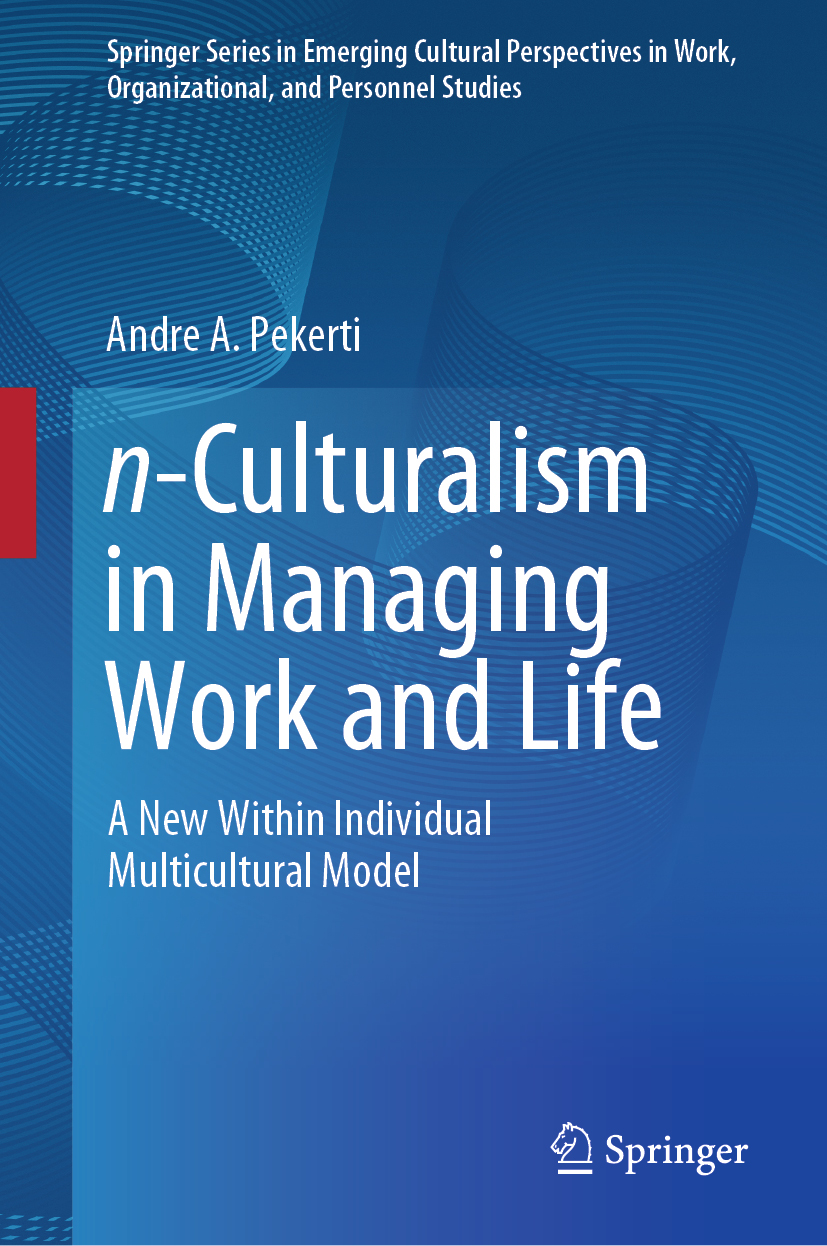Springer Series in Emerging Cultural Perspectives in Work, Organizational, and Personnel Studies
Series Editors
Catherine T. Kwantes
Department of Psychology, University of Windsor, Windsor, ON, Canada
Sharon Glazer
Division of Applied Behavioral Sciences, University of Baltimore, Baltimore, MD, USA
More information about this series at http://www.springer.com/series/16418
Andre A. Pekerti
n-Culturalism in Managing Work and Life
A New Within Individual Multicultural Model
Andre A. Pekerti
UQ Business School, The University of Queensland, Brisbane, QLD, Australia
ISSN 2662-4672 e-ISSN 2662-4680
Springer Series in Emerging Cultural Perspectives in Work, Organizational, and Personnel Studies
ISBN 978-3-030-27281-4 e-ISBN 978-3-030-27282-1
https://doi.org/10.1007/978-3-030-27282-1
Springer Nature Switzerland AG 2019
This work is subject to copyright. All rights are reserved by the Publisher, whether the whole or part of the material is concerned, specifically the rights of translation, reprinting, reuse of illustrations, recitation, broadcasting, reproduction on microfilms or in any other physical way, and transmission or information storage and retrieval, electronic adaptation, computer software, or by similar or dissimilar methodology now known or hereafter developed.
The use of general descriptive names, registered names, trademarks, service marks, etc. in this publication does not imply, even in the absence of a specific statement, that such names are exempt from the relevant protective laws and regulations and therefore free for general use.
The publisher, the authors and the editors are safe to assume that the advice and information in this book are believed to be true and accurate at the date of publication. Neither the publisher nor the authors or the editors give a warranty, expressed or implied, with respect to the material contained herein or for any errors or omissions that may have been made. The publisher remains neutral with regard to jurisdictional claims in published maps and institutional affiliations.
Disclaimer: Materials presented in our series are solely those of the authors, and do not necessarily reflect the opinions of the editors ofCulture, Organizations, and Work. We warmly invite any scholars to present their perspectives on culture, organizations, and work, as relevant to the series.
This Springer imprint is published by the registered company Springer Nature Switzerland AG
The registered company address is: Gewerbestrasse 11, 6330 Cham, Switzerland
Acknowledgements
I thank Christ my Lord for this opportunity and giving me the capabilities to complete this work, as well as, developing resilience. My deepest gratitude to Inez my wife, Zo, and Joel for their love, continuing support, and patience sharing their lives with yet another one of my projects.
To Anugerah (Pek) and Angela my father and mother, respectively for placing me in situations to develop as an individual and experience life, which provided the foundation for this book.
Thank you to Catherine Kwantes and Sharon Glazer my editors for believing in me, encouraging me to write this piece, and for youreagle eyescritically editing this monograph. The edits have certainly helped bring my ideas to life and developedn-Culturalism further. Shinjini Chatterjee for your technical input in this first book of mine.
David C. Thomas thanks for letting me share my thinking with you in the early stages of this project. Peter J. Buckley for acknowledging thatoutliersare valuable.
Im just as happy with little as with much, with much as with little. I've found the recipe for being happy whether full or hungry, hands full or hands empty. Whatever I have, wherever I am, I can make it through anything in the one who makes me who I am(Philippians 4: 1213; Message Translation).
n-Culturalism is a novel concept, as such this monograph contains a number of questions and propositions for future research. Please see a list of questions and propositions forn-Culturalism: A within individual multiculturalism model in Appendix A and B, respectively.
Introduction
Andre A. Pekerti
This issue of Culture, Organization, and Work focuses on how culture shapes individual employee attitudes and behaviors, with special attention to how individuals with multiple cultural identities are impacted by the intersection of those identities.
Dr. Pekerti proposes a new model of n-Culturalism that goes beyond the lenses of biculturalism and multiculturalism to understand how culture impacts those who incorporate dynamic cultural identities, to include ethnicity, religion, socioeconomic status, gender, nationality, and other subjective personal categorizations (imposed or adopted). This model ofn-Culturalism focuses on how individuals multiple personal identities relate with each other and extends current theories by proposing that the epitome of multiculturalism is not merely to have access to various cultural or ethnic identities, but to be able to juggle those identities and draw on them in the most effective manner as required in any given situation.
A single individual who draws on multiple cultural identities is no longer rare in todays workplace, and increasingly organizations are looking for those with the qualities that would make them adaptable and effective across cultural boundaries. Dr. Pekerti, in this volume, creates the argument that despite the conflicts inherent in having multiple cultural identities,n-Culturals are able to draw on a deep well of information and skills to work across cultural divides. He further suggests ways for organizations to develop mentoring programs to enhance the positive utility ofn-Culturalism in the workplace.
We are excited to usher this issue into our brief series to elucidate an emerging concept that has the potential application to a wide variety of situations in the workplace. We hope that readers of this issue will heed Dr. Pekertis call for more research.
Contents
List of Figures
Fig. 2.1 Multiple identities and domains of Joels life
Fig. 2.2 Zo adapting to situation to fit her identity and self-perceived meanings
Fig. 4.1 Constituent elements ofn-Culturalism.NoteThe elements of knowledge, identification, internalization, and commitment are all necessary but independently; they are insufficient components of multiculturalism. All elements have to be present within the individual and function interdependently in relation to two or more cultures (Pekerti & Thomas, 2016, p. 108)
Fig. 4.2 Exponential degree of complexity ofn-Culturalism
Fig. 6.1 Multiple identities and domains of Isaccs life
Fig. 6.2 Isaccs frame-switching mode versusn-Cultural mode in a workplace situation
Fig. 6.3 Multicultural mentor modeling program (Pekerti et al., 2015)
List of Tables
Table 1.1 Current distinctions between monocultural and bicultural/multicultural individuals

